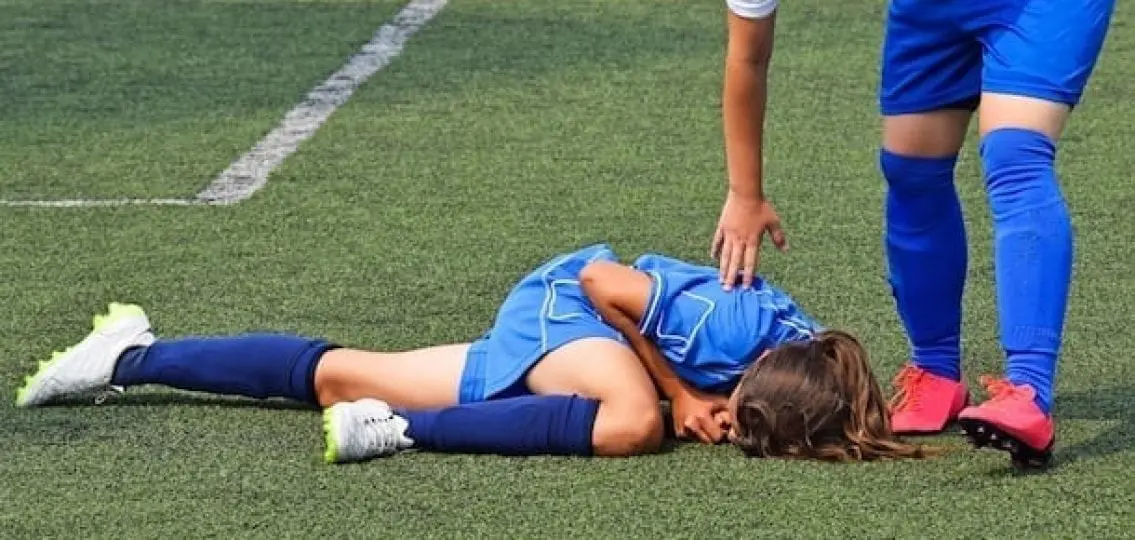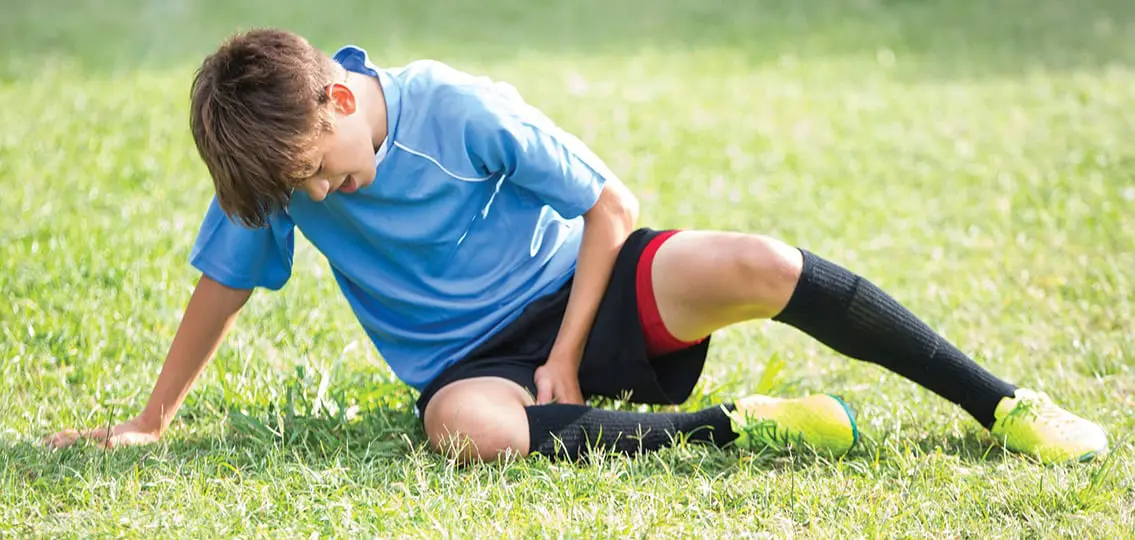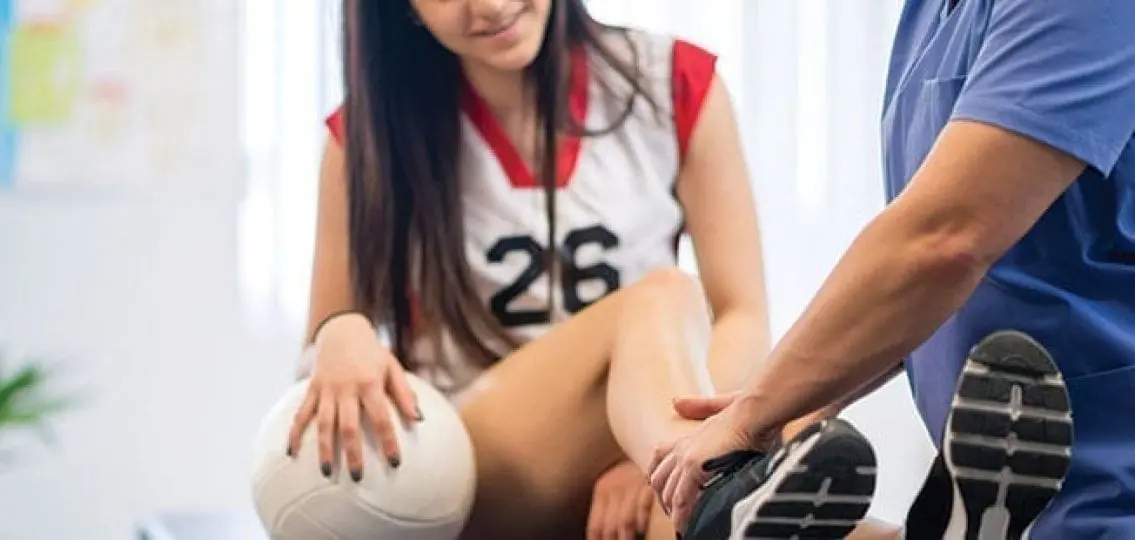Teenagers often don’t pay much attention to their feet. But foot and ankle pain can cause significant discomfort and interfere with normal activity. Foot and ankle pain in teens can be frustrating for both teens and parents. When should your teen see a podiatrist? We asked Dr. Michael Nirenberg, DPM, with the Friendly Foot Care Clinic in Crown Point, Indiana.

Q: What types of foot or ankle issues do you typically see with adolescent patients?
Nirenberg: Pediatric foot problems are some of the most common problems we treat. In the 12-15 year old age group, many teen, athletes or otherwise, may develop foot or ankle problems from daily use or from a sports-related injury. You may notice your teen limping, or they may tell you something hurts, or perhaps their foot or ankle is swollen. Common problems are heel pain, ingrown toenails, ankle sprains and strains from sports, plantar warts, and flat feet.
Q: What is heel pain, and why is it so common?
Nirenberg: The growth plate in the back of our heel bone begins to come together and solidifies at around 12 to 14 years old. Activity and physical stress can inflame and irritate this growth plate and cause foot and ankle swelling or pain in teens. When there is too much repetitive stress on the growth plate, inflammation can develop that can worsen with activity and sports.
Parents and coaches should know that heel pain is real and should never be dismissed. The treatment is often rest, taking an anti-inflammatory, and soaking in warm water with Epsom salts (which is an old-time remedy but can be very effective). If your teen has Sever’s Disease—inflammation of the heel’s growth plate—my advice is that you see a podiatrist to determine if a custom-made orthotic (special arch support) will help.
Teens with Sever’s Disease may still be able to participate in sports if they can stop and rest when the heel begins to hurt. Explain to your teen that pain is our body’s way of telling us that something is wrong. When it starts to hurt, then they are done for the day.
Q: How do you treat shin splints?
Nirenberg: Shin splints can be very painful. Depending on the severity, we will make custom orthotics. Custom orthotics made for your foot are key to help a painful, abnormal foot feel better. Over-the-counter supports like Dr. Scholl’s are not the same, as they are designed for the perfect foot; not necessarily your foot.
Q: What about ingrown toenails?
Nirenberg: Usually ingrown nails are caused by some type of trauma to the toenail—wearing a shoe that’s too tight, having the toe stepped on, or even kicking a ball. When I see a 15-year-old with an ingrown nail, it’s often gotten to the point where it is infected because the patient has waited too long to deal with it. When the toe gets infected, there may be redness and even pus. Ingrown nails can be taken care of with a small procedure in the office; most podiatrists will numb the toe, take out the piece of nail that is ingrown, and treat the root of the nail with medicine to prevent it from growing back.
Q: What do you recommend for teens with athlete’s foot or fungal infections?
Nirenberg: Athlete’s foot is caused by a fungus, usually occurring between the toes. The fungus most commonly attacks the feet because shoes create a warm, dark, and humid environment that fungus likes to grow in. Symptoms may include dry skin, itching, burning, cracking, and blisters. Teens tend to hide their feet in shoes and socks, and parents often don’t see the infection until it becomes severe. Let your teen know they should always tell you when something is wrong with their foot or anywhere on their body.
Athlete’s foot is easy to treat with prescription antifungal medication. Effective ways to lessen athlete’s foot are to air out your feet, spray your teen’s shoes with a disinfectant spray (such as Lysol), and leave the shoes wide open in direct sunlight. Spraying the shoes with Lysol disinfectant two times a week will kill many of the germs that like to grow in shoes. Teens should avoid walking barefoot in areas where fungus may be breeding. I recommend using shower shoes in public showers or locker rooms. Try to keep your feet dry, and change your socks frequently if your feet perspire heavily.
Q: How about plantar warts?
Nirenberg: Plantar warts can be irritating and painful, and are very contagious and spread rapidly. Warts are much easier to get rid of when there is just one wart instead of 10. They can also spread to the hands. For one plantar wart, I recommend a simple over-the-counter topical acid. If it doesn’t work in a few days, see a podiatrist to have it removed before it spreads. There are stronger prescription medications, and for multiple warts, patients may need laser surgery. To prevent warts from spreading to other family members or re-infecting your teenager, use bleach on the surfaces where your teenager walks barefoot or Lysol spray in shower or shared areas.

Parents should tell their teenagers to pay attention to their bodies. Notice and report if there is something new or different on their body. So often I hear from parents, “I didn’t know; they never told me.”




